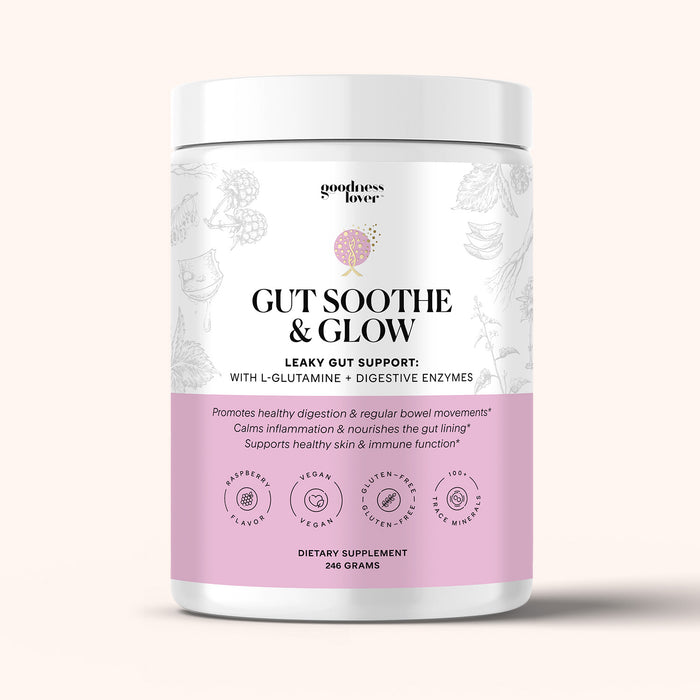Imagine your body as a sophisticated filtration system, designed over millennia to process natural toxins from your environment. Now fast-forward to today, where that same ancient system faces an unprecedented challenge: the Environmental Working Group estimates we're exposed to over 700,000 different toxic chemicals daily—most of which didn't exist when our great-grandparents were alive.
From the morning shower (with its chlorine and fragrance chemicals) to your commute (vehicle exhaust and microplastics), your lunch (pesticides and food additives), and even your home or office space (flame retardants and cleaning products)—your body's detoxification pathways are working overtime.
It's like upgrading the software on a vintage computer—eventually, the hardware struggles to keep up.
What's fascinating is how this toxic burden manifests uniquely in each of us. Your genetic makeup, lifestyle choices, and even your microbiome influence which toxins your body efficiently processes and which ones it struggles with.
In addition, these signals of toxic overload often masquerade as everyday complaints. That persistent afternoon fatigue might not just be about needing more coffee. The skin breakouts might not simply require a better face wash. Your weekend headaches might be more than just stress.
Your body speaks its own language of distress signals, and learning to recognize these early warning signs can help you provide support before minor issues develop into more serious health concerns.
Let's decode these signals your body sends when its detoxification systems need help, and explore science-backed strategies to restore balance in our increasingly toxic world.
Table Of Contents:
- Understanding Detoxification: Beyond the Hype
-
Physical Signs Your Body May Need Detoxification Support
- Persistent Fatigue and Low Energy
- Digestive Distress
- Skin Issues
- Brain Fog and Cognitive Issues
- Unexplained Weight Changes
- Sensitivity to Smells
- Sugar Cravings
- Frequent Illness or Weakened Immunity
- Poor Dietary Patterns
- Excessive Environmental Exposures
- Medication Use
- Chronic Stress
- Recurring Headaches
- Increased Allergic Reactions
- Decoding Your Body's Detox Signals
Understanding Detoxification: Beyond the Hype
Before diving into the signs, it's important to clarify what we mean by "detox." The term has been commercialized and sometimes misrepresented in wellness circles. True detoxification isn't about extreme juice cleanses or quick fixes but rather supporting your body's natural detoxification pathways—primarily your liver, kidneys, digestive system, lymphatic system, and skin.
These systems work tirelessly to filter waste, metabolize toxins, and eliminate harmful substances. When functioning optimally, they keep us healthy and energized. However, factors like poor diet, environmental pollutants, stress, and certain medications can place extra burden on these systems, leading to impaired detoxification pathways, a buildup of toxins, and subsequent health issues.
Physical Signs Your Body May Need Detoxification Support
1. Persistent Fatigue and Low Energy
One of the most common indicators that your body might benefit from detoxification support is unexplained fatigue that doesn't improve with adequate rest. When your liver and other detox organs are overburdened, they require more energy to function, potentially leaving you feeling drained.
Research shows that environmental toxins can damage your cellular power plants (mitochondria) by disrupting their energy production processes and increasing harmful free radicals. This creates a situation where your body diverts precious energy resources toward detoxification efforts instead of supporting your normal daily functions and activities.
If you find yourself constantly reaching for caffeine or experiencing afternoon energy crashes, your body might be signaling the need for detox support.
2. Digestive Distress
Your digestive system serves as a primary elimination pathway for toxins processed by the liver. When this system's function is compromised, you may experience:
- Irregular bowel movements or constipation
- Bloating and excessive gas
- Heartburn or acid reflux
-
Undigested food in stool
These symptoms can indicate that your body isn't efficiently processing and eliminating waste, potentially allowing toxins to be reabsorbed into your bloodstream rather than excreted.
Environmental toxins like mercury, lead, and cadmium are particularly disruptive to digestive function. For example, heavy metals can disrupt normal digestive function by interfering with the nervous system that controls intestinal movement. These metals damage the nerves and muscles responsible for the wave-like contractions that move waste through your digestive tract, resulting in constipation and impaired elimination.
While occasional constipation has many potential causes, persistent digestive distress may be your body's way of signalling that its detoxification systems are overwhelmed.
3. Skin Issues
Your skin is your largest organ and serves as a major elimination pathway. When internal detoxification systems become overwhelmed, toxins may try to exit through the skin, potentially resulting in:
- Acne or rashes
- Itchy, dry skin
- Excessive sweating or body odor
- Dull complexion or premature aging
-
Increased sensitivity or reactivity
Environmental toxins can trigger inflammatory cascades in the skin through the production of eicosanoids—lipid mediators that play key roles in inflammatory skin conditions. One 2012 study showed that when primary detoxification pathways are compromised, the skin becomes an alternative route for elimination, with inflammatory skin conditions like psoriasis and atopic dermatitis showing abnormal lipid metabolism and increased inflammatory markers.
4. Brain Fog and Cognitive Issues
Toxin buildup can affect your neurological function, potentially leading to:
- Difficulty concentrating
- Memory problems
- Headaches
- Mood swings or irritability
Research has shown that certain environmental toxins can cross the blood-brain barrier and accumulate in brain tissue. These toxins may interfere with neurotransmitter function, trigger neuroinflammation, and impair mitochondrial energy production in brain cells—all of which can manifest as brain fog, memory problems, difficulty concentrating, and mood disturbances.
5. Unexplained Weight Changes
Difficulty losing weight despite diet and exercise efforts can sometimes be related to toxin accumulation. Many environmental toxins are lipophilic (fat-loving) and stored in fat cells. Your body may resist releasing fat stores if it means releasing stored toxins into your bloodstream.
Conversely, unexplained weight loss could indicate that your liver—which plays a key role in metabolism—is struggling to function properly.
6. Sensitivity to Smells
Heightened sensitivity to perfumes, cleaning products, or other chemical odours may indicate your detoxification systems are struggling. When your liver and other detox pathways are overburdened, your body becomes less efficient at processing and eliminating environmental chemicals.
Research shows that individuals with impaired detoxification pathways often experience increased chemical sensitivities as toxins accumulate in tissues. This heightened reactivity serves as your body's warning system, signalling that your detoxification capacity may be compromised and in need of additional support.
7. Sugar Cravings
Intense cravings for sugar and refined carbohydrates may signal detoxification issues. Research demonstrates that toxin exposure, specifically endocrine-disrupting chemicals such as bisphenol A, can disrupt blood glucose regulation and hormone signalling pathways. When your liver is overburdened with toxins, its ability to regulate blood sugar becomes compromised, potentially triggering cravings as your body seeks quick energy sources.
Additionally, certain gut bacteria thrive on sugar, and an imbalanced microbiome (often resulting from toxin exposure) can actually generate cravings through vagus nerve signalling to your brain.

8. Frequent Illness or Weakened Immunity
If you find yourself catching every cold that circulates or taking longer than usual to recover from illness, your immune system may be compromised due to toxin overload.
Environmental toxins can suppress immune function by reducing the activity of natural killer cells, disrupting T-cell signaling, and impairing macrophage response—all critical components of your body's defense system. Additionally, researchers have found that heavy metals like lead and mercury can bind to proteins in immune cells, altering their structure and function. This can reduce your body's ability to recognize and respond to viruses and bacteria effectively.
The liver, your primary detoxification organ, also produces immune factors that help coordinate immune responses. When the liver is busy processing environmental toxins, production of these immune-supporting compounds may decrease.
9. Poor Dietary Patterns
Poor dietary patterns significantly increase toxic load and may signal your body's need for detoxification support:
- Processed foods with artificial additives and preservatives
- High consumption of refined sugar and simple carbohydrates
- Conventional produce with pesticide residues
- Factory-farmed animal products containing antibiotics and hormones
- Regular alcohol consumption
Research shows these choices directly impact your detoxification capacity. Artificial food additives create oxidative stress in the liver, while pesticide residues accumulate in tissues and disrupt normal metabolism. High sugar intake—averaging 17 teaspoons daily for most Americans—promotes fatty liver development, significantly reducing detoxification efficiency.
Antibiotics and hormones in conventional animal products disrupt gut microbiome balance, compromising a system crucial for both detoxification and immunity. And even moderate alcohol consumption demands substantial liver resources, diverting capacity away from processing other toxins.
10. Excessive Environmental Exposures
Consider detoxification support if you have regular exposure to environmental toxins such as:
- Indoor and outdoor air pollution (including mold and VOCs)
- Chemicals in cleaning and personal care products
- Pesticides and herbicides in your home or environment
- Heavy metals from water, food, or occupational exposure
- Plastic-associated chemicals like BPA and phthalates
These toxins accumulate in your body—particularly in fatty tissues—where they can remain for decades. Research reveals indoor air is often 2-5 times more polluted than outdoor air, while the CDC has detected hundreds of environmental chemicals in most Americans tested. Many of these compounds disrupt hormone function even at minimal doses.
The Environmental Working Group's discovery of over 200 industrial chemicals in umbilical cord blood underscores how pervasive these exposures have become. While your body has natural detoxification mechanisms, continuous exposure to this chemical cocktail can overwhelm these systems, potentially contributing to various health issues.
11. Medication Use
While medications are often necessary, they do place additional burden on your liver, which must metabolize them. If you're taking multiple medications or have been on certain medications long-term, your liver might benefit from extra support.
Common medications that particularly tax liver detoxification pathways include:
- Non-steroidal anti-inflammatory drugs (NSAIDs) like ibuprofen and naproxen
- Acetaminophen (Tylenol), which depletes glutathione—a critical detoxification compound
- Acid-reducing medications such as PPIs (Prilosec, Nexium)
- Statins for cholesterol management
- Certain antibiotics and antifungals
- Many psychiatric medications including antidepressants and antipsychotics
These medications require complex processing by liver enzymes, potentially diverting resources from other detoxification needs. Research shows that long-term medication use can alter these enzyme systems, affecting how efficiently your body processes other toxins.
Note: Never discontinue prescribed medications without consulting your healthcare provider.
12. Chronic Stress
Chronic stress significantly hinders your body's ability to remove toxins in several important ways. When you're constantly stressed, your body activates the sympathetic "fight-or-flight" response, diverting vital blood flow and energy away from detoxification organs like the liver and kidneys toward muscles and the heart.
Stress also disrupts digestive function by reducing enzyme production, decreasing gut motility, and altering the gut microbiome—all critical components of your body's first-line detoxification system.
The impact of stress on sleep is equally concerning as your brain has a special cleaning system called the glymphatic system that works primarily during deep sleep to remove waste products.
Furthermore, ongoing stress triggers inflammation throughout your body, producing even more waste materials that your already-taxed detoxification systems must process. This creates a troubling cycle where stress impairs detoxification, leading to toxin accumulation, which can further stress the body, making the original problem worse.
13. Recurring Headaches
Frequent headaches with no clear trigger may indicate toxin accumulation affecting your neurological system. Environmental toxins, particularly heavy metals and certain chemicals, can cross the blood-brain barrier and trigger neuroinflammation. Studies have found that individuals exposed to higher levels of certain environmental toxins experienced more frequent headaches or migraines than those with lower toxin levels.
14. Increased Allergic Reactions
New or worsening allergic responses can signal detoxification system overload. Research shows that toxin accumulation can increase inflammatory markers and trigger immune system hypersensitivity. When your detoxification pathways are compromised, your immune system may become hypervigilant, reacting to substances it previously tolerated. This can manifest as new food sensitivities, seasonal allergies, or skin reactions. The connection lies in how environmental toxins can disrupt immune regulation, particularly T-regulatory cells that normally prevent excessive immune responses.

Decoding Your Body's Detox Signals
Just as our ancient filtration systems face unprecedented modern challenges, our bodies continuously send us signals when those systems need support. These whispers—whether fatigue, skin issues, or unexplained headaches—aren't necessarily calling for dramatic interventions, but rather thoughtful attention to our body's natural cleansing processes.
Think of detoxification not as a weekend cleanse but as a daily conversation with your body. It's about creating a sustainable environment where your sophisticated internal filtration can function optimally despite the 700,000 chemicals it now encounters.
Begin with gentle yet powerful adjustments: abundant hydration, nutrient-dense foods that support liver function, mindful reduction of chemical exposures, stress management, and quality sleep. For more personalized guidance, a functional medicine practitioner can help identify your unique detoxification patterns and needs.
When you learn to interpret and respond to your body's detox signals, you're essentially providing that vintage computer with the support it needs to run modern software. You're not just addressing today's symptoms—you're upgrading your entire operating system for long-term resilience in our toxin-laden world.















What Do You Think? Comment Below: